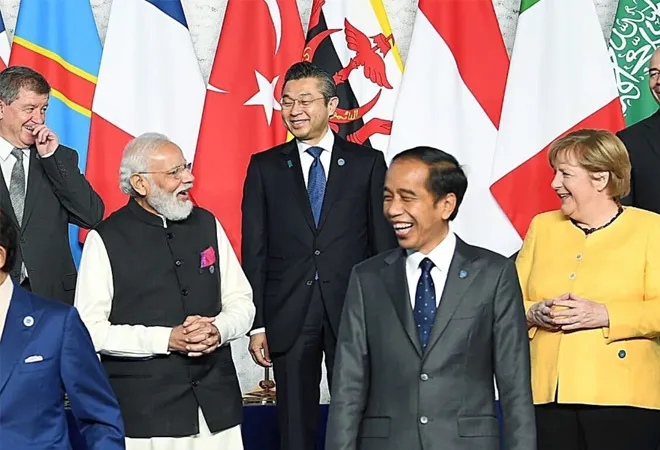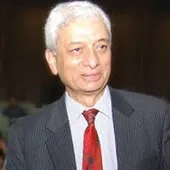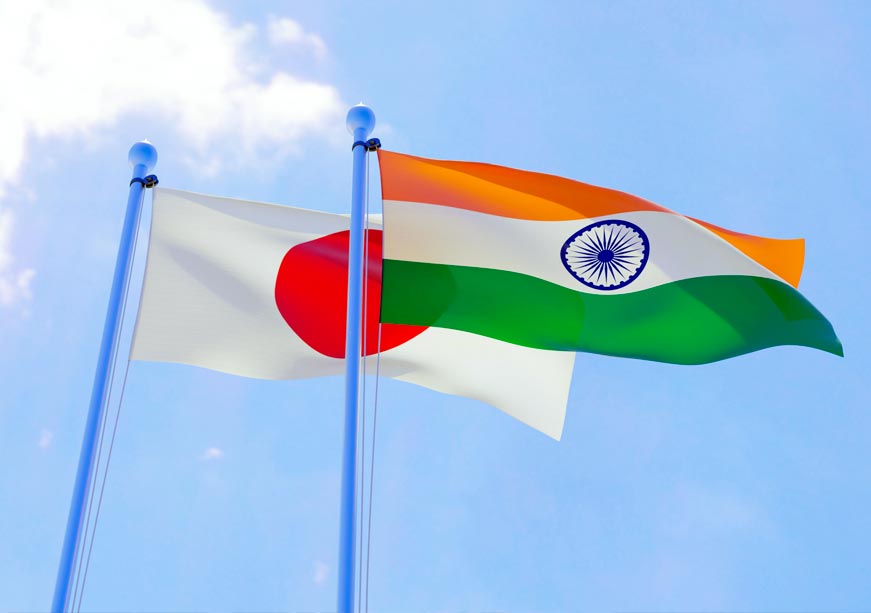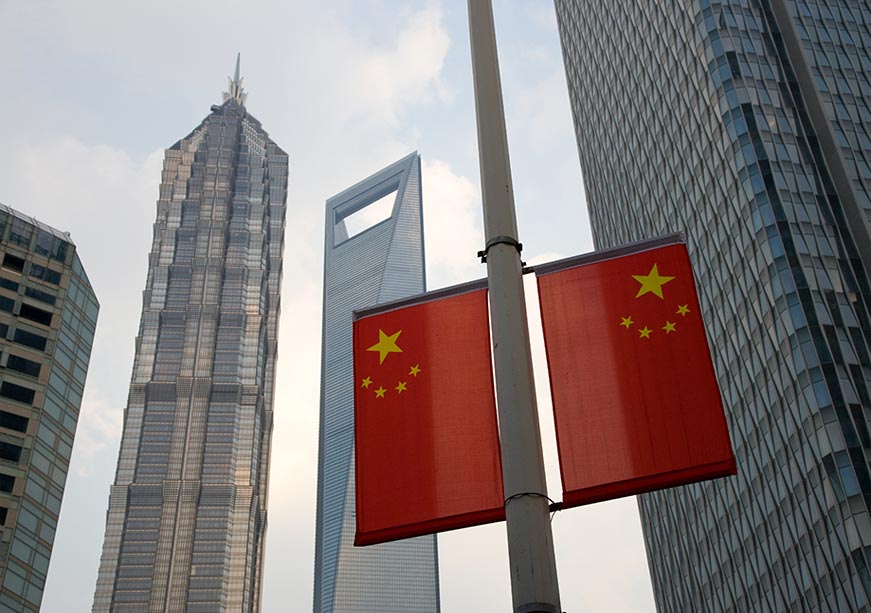
India's imminent assumption of the G20 Presidency—from 1 December 2022—is not being treated as a routine change of guard in an international body.
This is because of multiple reasons, such as:
i) Timing: The world is passing through a phase of extreme geopolitical and geoeconomic stress and strain such as the Russia-Ukraine war and the post-pandemic transition.
ii) Threats to multilateralism: As the world faces several global challenges, multilateralism which was the hitherto accepted recipe for global stability is now being questioned.
iii) India’s growing clout and credibility: There is a growing perception about India’s leadership qualities and its capacity to resist partisan pressures from either side.
iv) The structure of the G20: Its structure, inclusive global reach, attention to implementation, grassroots underpinning from civil society organisations, and the certainty that even after December 2023, when India relinquishes charge, it will continue for one more year to be in the pilot's cabin as immediate past president. It will be working with the next president of G20 and an important developing country, Brazil, which is now under President Lula da Silva known to be very close to India.
The G20 has no parallel among intergovernmental forums that comprises of major developed as well as developing economies, thus offering a unique platform. These members include Argentina, Australia, Brazil, Canada, China, France, Germany, India, Indonesia, Italy, Japan, the Republic of Korea, Mexico, Russia, Saudi Arabia, South Africa, Turkey, the United Kingdom (UK), United States (US), and the European Union (EU). G20 accounts for 85 percent of global GDP, 75 percent of international trade and two-thirds of the world population, making it a premier forum for international economic cooperation. Indeed, the alignment of G20 cooperation in the post-COVID world could be the game changer in an otherwise dark scenario.
G20 accounts for 85 percent of global GDP, 75 percent of international trade and two-thirds of the world population, making it a premier forum for international economic cooperation.
India is currently a part of the G20 Troika (current, previous, and incoming G20 presidencies) comprising Indonesia, Italy, and India. During India’s imminent presidency, India, Indonesia, and Brazil would form the troika. This would be the first time when the troika would consist of three developing countries and emerging economies, providing them with a greater voice at a very crucial juncture when the fundamentals are moving fast in a reset mode.
The G20 will see hundreds of meetings on different tracks apart from the summit itself, both before and after, for a whole year starting in December 2022.
i) The Finance Track, with eight workstreams (Global Macroeconomic Policies, Infrastructure Financing, International Financial Architecture, Sustainable Finance, Financial Inclusion, Health Finance, International Taxation, and Financial Sector Reforms).
ii) The Sherpa Track, with 12 workstreams (Anti-corruption, Agriculture, Culture, Development, Digital Economy, Employment, Environment and Climate, Education, Energy Transition, Health, Trade and Investment, and Tourism).
iii) Ten Engagement Groups of Private Sector/Civil Society/Independent Bodies (Business 20, Civil 20, Labour 20, Parliament 20, Science 20, Supreme Audit Institutions 20, Think 20, Urban 20, Women 20, and Youth 20). This is extremely important given the difficulties of resolving thorny international issues solely at the government level. However, if out-of-the-box thinking is being genuinely sought by the Indian government, it should consider opening up the Engagement Groups to smaller, independent-minded think tanks and business bodies who may not always toe the establishment line but are as passionately committed to the national interest as others.
Another valuable window of the G20 Presidency is its tradition of inviting some guest countries and international organisations to its G20 meetings and summit. These include guest countries such as Bangladesh, Egypt, Mauritius, Netherlands, Nigeria, Oman, Singapore, Spain, and the United Arab Emirates (UAE), as well as International Solar Alliance (ISA), Coalition for Disaster Resilient Infrastructure (CDRI).
The fact that the only South Asian country to be invited is Bangladesh is, however, not a compliment to India's commitment to strengthen the cooperative framework in its own region, and India must work to reassure other neighbours such as Nepal that subregional and regional opportunities to contribute to a better Asia will not be ignored under its presidency.
Another valuable window of the G20 Presidency is its tradition of inviting some guest countries and international organisations to its G20 meetings and summit.
The G20 priorities are in the process of being firmed up. India’s External Affairs Minister Dr S Jaishankar has made it clear at the United Nations General Assembly (UNGA) that major issues such as environment, debt, economic growth, food and energy security as well as the reform of governance of multilateral financial institutions will be “a core priority”. In the Ministry of External Affairs (MEA) spokesperson’s statement, little more was given away,“The priorities of the upcoming summit are being “firmed up” and said discussion among all the member countries will include issues related to “women’s empowerment, digital public infrastructure, health, agriculture, education, culture, tourism, climate financing, circular economy, global food security, energy security, green hydrogen, disaster risk reduction and resilience, fight against economic crime and multilateral reforms.”
Challenges confronting India
What is left unsaid as of now is that there are many sensitive and complicated questions which must be faced, and the one country which can bell the cat is India. For example, the use of nuclear weapons is increasingly likely, and the Treaty on the Non-Proliferation of Nuclear Weapons (NPT) seems to have outlived its already questionable utility. Yet India itself is a nuclear power and a non-signatory to NPT. Can it summon the moral ground to initiate thinking on how the world can be forever saved from a possible nuclear catastrophe? Can we promote substantive ideas for global institutions for the coming decades, given our own disenchantment with the UN, and also the inability of governments to deal with the challenges to peace and stability.
Can we push the world to rethink our current economic system, which will only accentuate extremes of wealth as well as poverty; can we draw on our ancient tradition and Gandhian thinking to balance priorities and give greater weightage to human rather than military security? In a world of rising super power tension and receding democracies, can we force the world towards rethinking the substance of democracy? How can we all ensure that climate change does reverse progress towards attaining Sustainable Development Goals (SDGs) for the poorest and most vulnerable countries?
India’s G20 presidency should be also used to pursue its thought leadership role and the broader goal of reducing polarisation, channelise resources in an inclusive manner, and firm up optics in favour of developmental priorities.
In the last few years, the role and relevance of multilateral organisations have been much debated. Thus, this should be a year of new possibilities to enhance their need and credibility, since every important multilateral body will be participating in G20 deliberations. It should be possible to chart new roadmaps for international development and cooperation.
India’s G20 presidency is an unprecedented opportunity to shape the global narrative in favour of reducing the carbon footprint and encouraging green energy and digitalisation as significant components of transformational changes. India’s G20 presidency should be also used to pursue its thought leadership role and the broader goal of reducing polarisation, channelise resources in an inclusive manner, and firm up optics in favour of developmental priorities. A lot will depend on how ideas trickle down to action and finally impact the world. In this regard, there is great confidence in the leadership power of India’s G20 team, which includes former Niti Aayog CEO Amitabh Kant and former Foreign Secretary of India Harsh V Shringla.
The views expressed above belong to the author(s). ORF research and analyses now available on Telegram! Click here to access our curated content — blogs, longforms and interviews.




 PREV
PREV



